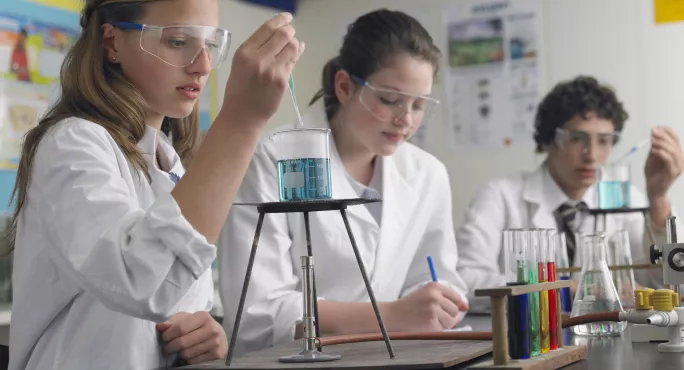“When your exams were cancelled, what did you do instead?”
All schools are acutely aware this year’s GCSE and A-Level students will inevitably face this sort of question in future job interviews.
As such, like every senior school in the UK, when it was announced that exams were cancelled, we faced the dilemma of how to help students make the best use of this unexpected additional time to give them skills, knowledge and experiences that will prepare them for the next stage in their lives.
Of course, continuing lesson delivery can help but, for many students, the lack of exams will have undermined motivation - and, worse potentially, made them feel their time in school lacked a meaningful outcome.
Yet as all know, it’s about the journey not the destination.
The 5 Rs
This is why it is vital, more than ever, that schools find ways to ensure children understand that what they have learned during their time at school is not just material to be fed into an exam machine for an outcome in August, but to develop deeper skills and critical faculties vital for their future.
Like many schools, Benenden has a core set of academic aptitudes that pupils and parents have been referred to throughout their time in school - in our case, these are what we call the 5Rs and are heavily influenced by Guy Claxton’s Building Learning Power.
In tutor meetings, self-reviews and self-assessments, pupils of all ages use the terminology: resilience, resourcefulness, relationships, reflectiveness, responsibility.
Posters around the school break down these qualities into student-friendly, yet challenging and progressive “I can” statements.
The attainment and attitude to learning report criteria reference the 5 Rs and day-to-day marking also uses the words.
Proof of progress
The familiarity with these words and the skills they represent has made it so much easier to help both students and parents understand that, even without exams, there is proof that progress has been made.
Tutors, teachers, boarding house staff and senior management have all been able to stress in one-to-one meetings, assemblies, group seminars and written reports how these skills have been evidenced.
A missed parents’ morning has been replaced by Zoom or Teams calls to the student and her parents; an anachronistic set of Year 11 reports, written before the abolition of exams, which displayed grades and advice for revision, has been rewritten with new comments that focus on the acquisition of both subject-specific and generic skills and understanding.
Assemblies in year groups or house “layers” have allowed students to speak about how they are finding learning in lockdown has actually helped their progress in the 5 Rs, rather than held them up.
A focus in end-of-term reports on how the student has become a more skilled historian, chemist, mathematician, etc has really honed staff and student attention on the core purpose of the curriculum - a long-lasting understanding that goes beyond a 9 to 1 number or an A* to E grade, but that supports future learning and intellectual curiosity.
A skill set for life
Of course, pupils are still going to receive their centre assessed grades and, hopefully, this will provide satisfaction for their academic efforts - even if it won’t have the same triumph and elation that those memorable days provide.
But the time over the past 10 or so weeks engaging with children and their families, of reminding them what they have achieved over the years, who they have become and how this will help them for the future, has, in spite of everything, underlined what education is all about.
It’s not just about those grades that somehow come to define the years of schooling our pupils go through in the eyes of future employers.
It’s about schools helping young people to become well-rounded, responsible and inquisitive learners, ready for the next stage of their life journey, whatever they choose to do.
That’s an ideal we should always remember and promote throughout a child’s education.
Lesley Tyler is executive director of curriculum and professional excellence at Benenden School in Kent
